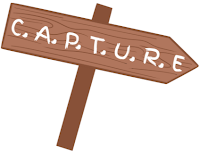- Whataboutism: Drag in unrelated issues to dodge your point of view.
- Bad-Faith Arguments: Pretend to debate, but waste your time.
- Personal Attacks: Insult you instead of engaging.
Sunday, 31 August 2025
Online Etiquette: Why Do Trolls Act So Mean?
💳 Scan to Pay via UPI

📱 Scan with any UPI app to pay
Google Pay • PhonePe • Paytm • BHIM
Click anywhere outside to close
Monday, 25 August 2025
Online Etiquette (2): Trolls Trip on Their Own Tracks!
💳 Scan to Pay via UPI

📱 Scan with any UPI app to pay
Google Pay • PhonePe • Paytm • BHIM
Click anywhere outside to close
Sunday, 17 August 2025
Online Etiquette (1): The Myth of Online Anonymity
💳 Scan to Pay via UPI

📱 Scan with any UPI app to pay
Google Pay • PhonePe • Paytm • BHIM
Click anywhere outside to close
Monday, 11 August 2025
Love (3): The Force That Holds Us Together
"Darkness cannot drive out darkness; only light can do that. Hate cannot drive out hate; only love can do that.” - The Reverend Dr. Martin Luther King, Jr.
💳 Scan to Pay via UPI

📱 Scan with any UPI app to pay
Google Pay • PhonePe • Paytm • BHIM
Click anywhere outside to close
Monday, 4 August 2025
LOVE (2) —"Forever Is a Fairytale"
True love doesn’t stay—it keeps returning.
💳 Scan to Pay via UPI

📱 Scan with any UPI app to pay
Google Pay • PhonePe • Paytm • BHIM
Click anywhere outside to close
Monday, 28 July 2025
LOVE (1): The Magic of First Love
""First love is only a little foolishness and a lot of curiosity." — George Bernard Shaw
💳 Scan to Pay via UPI

📱 Scan with any UPI app to pay
Google Pay • PhonePe • Paytm • BHIM
Click anywhere outside to close
Tuesday, 22 July 2025
CAPTURE (8): Discipline - Break-Down and Build-Back
"“Discipline is choosing what you want most, over what you want now.” —Unknown
💳 Scan to Pay via UPI

📱 Scan with any UPI app to pay
Google Pay • PhonePe • Paytm • BHIM
Click anywhere outside to close
Monday, 14 July 2025
CAPTURE (7): Express – The Silence of Hidden Thoughts
"Culture speaks through words, but connection thrives in silence, gestures, and willingness to meet halfway."
💳 Scan to Pay via UPI

📱 Scan with any UPI app to pay
Google Pay • PhonePe • Paytm • BHIM
Click anywhere outside to close
Monday, 7 July 2025
CAPTURE (6): The ATM Effect - Stay Memory-Rich Forever
"The mind's true wealth is measured not by what it holds, but by what it recalls on demand."
💳 Scan to Pay via UPI

📱 Scan with any UPI app to pay
Google Pay • PhonePe • Paytm • BHIM
Click anywhere outside to close
Saturday, 5 July 2025
Your voice helps shape Teega. 🌿
"Your feedback is the light on my path —
without it, I’m flying blind."
💳 Scan to Pay via UPI

📱 Scan with any UPI app to pay
Google Pay • PhonePe • Paytm • BHIM
Click anywhere outside to close
Sunday, 29 June 2025
CAPTURE (5): Why Smart People Make Dumb Mistakes?
- Question the obvious
- Translate perspectives
- Confirm comprehension
“The greatest enemy of knowledge isn’t ignorance; it’s the illusion of knowledge.” — Stephen Hawking
💳 Scan to Pay via UPI

📱 Scan with any UPI app to pay
Google Pay • PhonePe • Paytm • BHIM
Click anywhere outside to close
Sunday, 22 June 2025
CAPTURE (4): THINK - Where Ideas Come Alive
“Think like you have all the time..... But act like you have none."
💳 Scan to Pay via UPI

📱 Scan with any UPI app to pay
Google Pay • PhonePe • Paytm • BHIM
Click anywhere outside to close
Monday, 16 June 2025
Capture (3): Prioritize – The Art of Strategic Neglect
“The art of being wise is the art of knowing what to overlook.” — William James
💳 Scan to Pay via UPI

📱 Scan with any UPI app to pay
Google Pay • PhonePe • Paytm • BHIM
Click anywhere outside to close
Links

This work is licensed under a Creative Commons Attribution-NonCommercial-NoDerivs 3.0 Unported License





%20The%20magic%20of%20first%20love_20250728_062147_0000.png)




